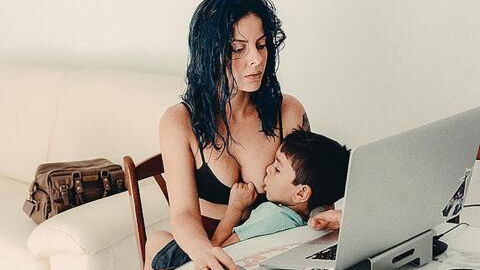It would usually be unthinkable to consider separating from a child who has been adopted by a family. The American adoption system is totally different in this respect however, as proven by this controversy surrounding Myka Stauffer's story.
Discover our latest podcast
A shocking announcement
Youtuber Myka Stauffer is used to sharing her daily life with her more than 713,000 followers. On May 27, the influencer published a video on her channel entitled 'An update on our family.'
For seven minutes, the young woman and her partner spoke about the decision they had reached about their son Huxley, who was adopted about three years ago in China. The young boy, who suffers from autism, has now been placed in the care of another family.
The couple explained that they were not able to raise the autistic child properly.
In tears, the YouTuber says:
There isn't an ounce of me that doesn't love Huxley. (...) Do I feel like a failed mother? Yes, 500%. (...)
Myka Stauffer explained that the boy is doing well with his new family:
He's happy, he's well and his mother has a medical background. He is in good shape.
The news caused quite the controversy on the Internet. Many users denounced this behaviour, and some even believe that the young woman used the child's disability to 'gain views' and, by extension, make money. Internet users have therefore launched a petition for the YouTuber's video, and the content associated with Huxley to be demonetised.
'Returning' a child, a common practice?
In the United States, it is perfectly acceptable for the adoptive parents of a child to return him or her to the institution from where they were adopted. It is also possible for them to then have the child adopted by another family, as illustrated by influencer Myka Stauffer's case.
This process could even be a godsend for some parents who do not have much money since it costs half as much as a conventional procedure.
You can't see the forest for the trees
A quarter of the children adopted each year in the United States are eventually abandoned by their adoptive parents, according to an estimate by American public services.
This process, known as 'rehoming,' is not legally supervised; a child can be adopted and readopted indefinitely.















